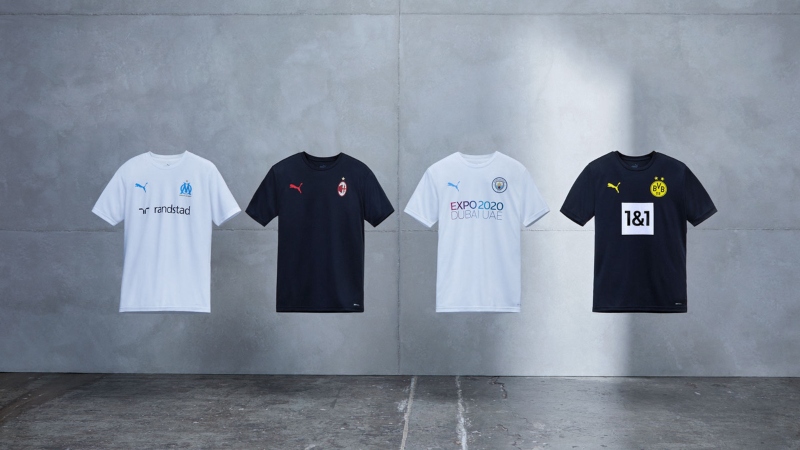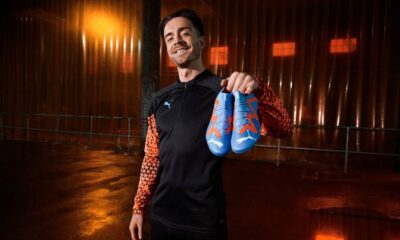Football
RE:JERSEY – PUMA is testing a G2G recycling process in its Circular Project to use old football jerseys to make new ones

Sports brand PUMA will be launching an innovative manufacturing process that will use old football jerseys to produce new ones. The aim of this initiative is to reduce waste and pave the way for future more circular production models.
The recycling process used in the RE::JERSEY project makes it possible to use old football jerseys with logos, embroidery and club badges that previously hindered recycling efforts. This allows RE::JERSEY to use these jerseys as the main raw material for the production of yarn for new club clothing.
In the RE::JERSEY recycling process, the garments are first chemically broken down into their main components (depolymerisation). Then the dyes are filtered out and the material is chemically put back together to produce yarn (repolymerisation) that has the same performance properties as virgin polyester.
While the PUMA football equipment on the market today is made from 100 percent recycled polyester, RE::JERSEY jerseys are made from 75 percent recycled football jerseys. The remaining 25 percent comes from SEAQUAL® MARINE PLASTIC1.
“With RE::JERSEY, we wanted to develop additional ways to reduce our environmental impact, conserve resources and reuse materials,” said Howard Williams, Director of Apparel Technology at PUMA. “The insights we gained from RE::JERSEY will help us develop more circular products in the future.”
Products produced by PUMA as part of the RE::JERSEY project will be worn on the pitch during pre-match warm-ups by Manchester City, AC Milan, Borussia Dortmund and Olympique de Marseille. The teams will wear the jerseys ahead of their league matches in late April and early May, starting with Manchester City’s match against Watford on 23 April.
The RE::JERSEY trial is part of PUMA’s Circular Lab and its sustainability platform called Forever Better. As part of the Circular Lab, PUMA announced the RE::SUEDE programme last year, testing whether it can produce a biodegradable version of its iconic SUEDE sneakers.












